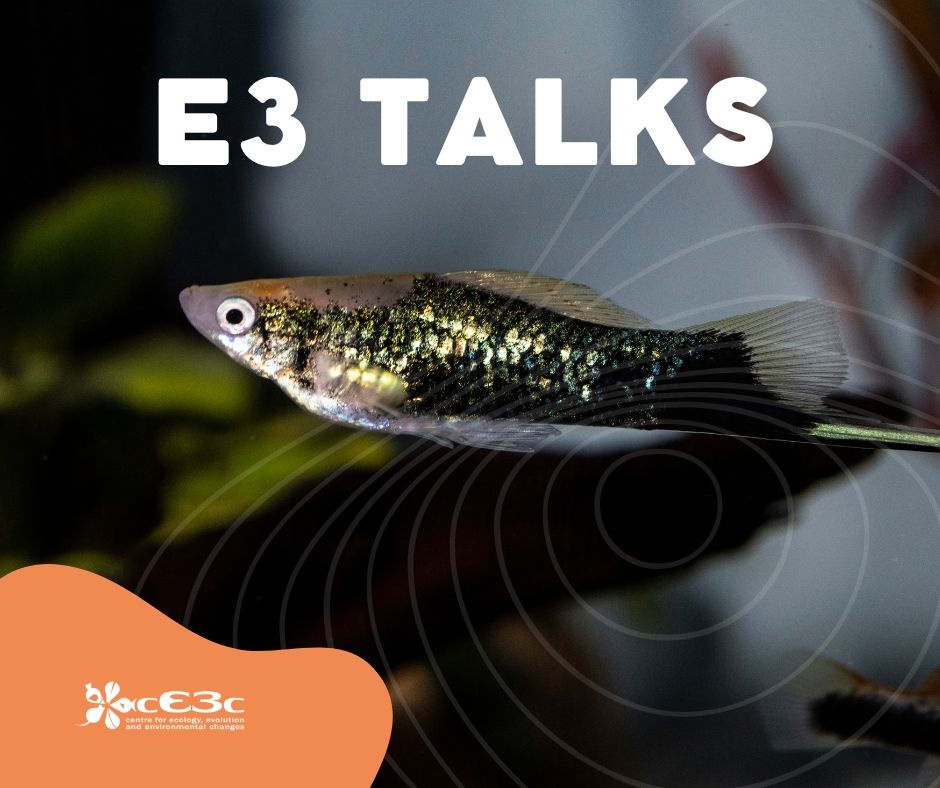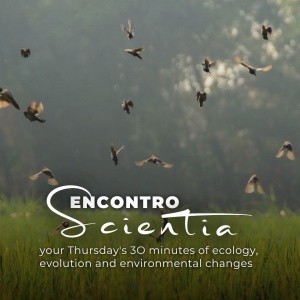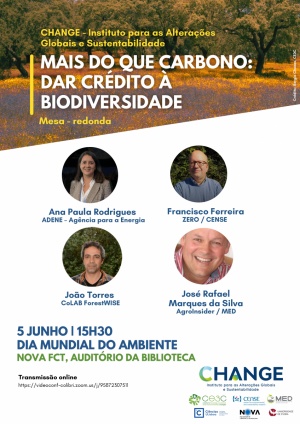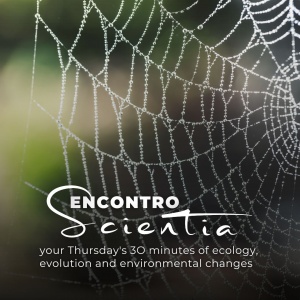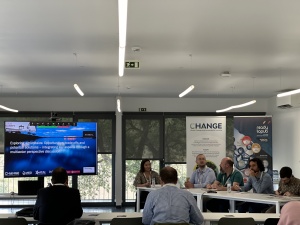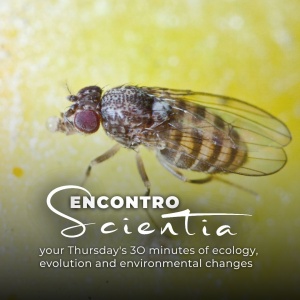Lamentamos informar que, por motivos da esfera privada do orador, a talk de hoje terá de ser cancelada. Agradecemos a compreensão e pedimos desculpa pelo incómodo.
We regret to inform that, for reasons within the speaker's private domain, the talk will have to be cancelled. we thank you for your understanding and apololige for any incovenience.
_____________________________________________
Pollutants and climate change as drivers of hybridization in freshwater fish
Wilson F. Ramírez-Duarte (PostDoc Researcher | University of Toronto, Department of Ecology and Evolutionary Biology, Chelsea Rochman´s laboratory)
Species interactions around the globe have been dramatically altered due to human activities. In freshwater ecosystems, changes in physical and chemical properties of water have the potential to break down reproductive barriers among fish species and influence hybridization, or the exchange of genes between species. In principle, hybridization can occur whenever two species come into contact, but many animal species have strong mating preferences for their own species that limit hybridization. Studies have demonstrated that disruption of mechanisms of communication that are used in mate choice decisions can trigger hybridization. However, it is not clear how much influence pollution and climate change-driven modifications in water quality have on inducing hybridization among freshwater fish species. From first principles, physical and chemical changes in water quality may affect fish behavior, expression of secondary sexual traits, and production, transmission, and perception of reproductive cues, which could all impact mate selection. Moreover, changes in water quality parameters may induce range shifts, facilitating contact between previously isolated species. The objective of our research is to determine to what extent pollution and climate change-driven changes in water quality are influencing hybridization among freshwater fish species. In this presentation I will go over how pollution of freshwater ecosystems may break reproductive barriers among fish species and facilitate/induce hybridization and will present preliminary results of our research conducted on swordtails, Xiphophorus spp., in the State of Hidalgo, Mexico.
Monday, October 3, 2022 | 13h00-14h00 (Lisbon, Portugal time) | Hybrid event: FCUL, Room 2.3.13 & Zoom (https://videoconf-colibri.zoom.us/j/95986329230?pwd=WCsxY3RyRFdKUnppNzhvRVlLRTBLdz09; passcode: 958304)

